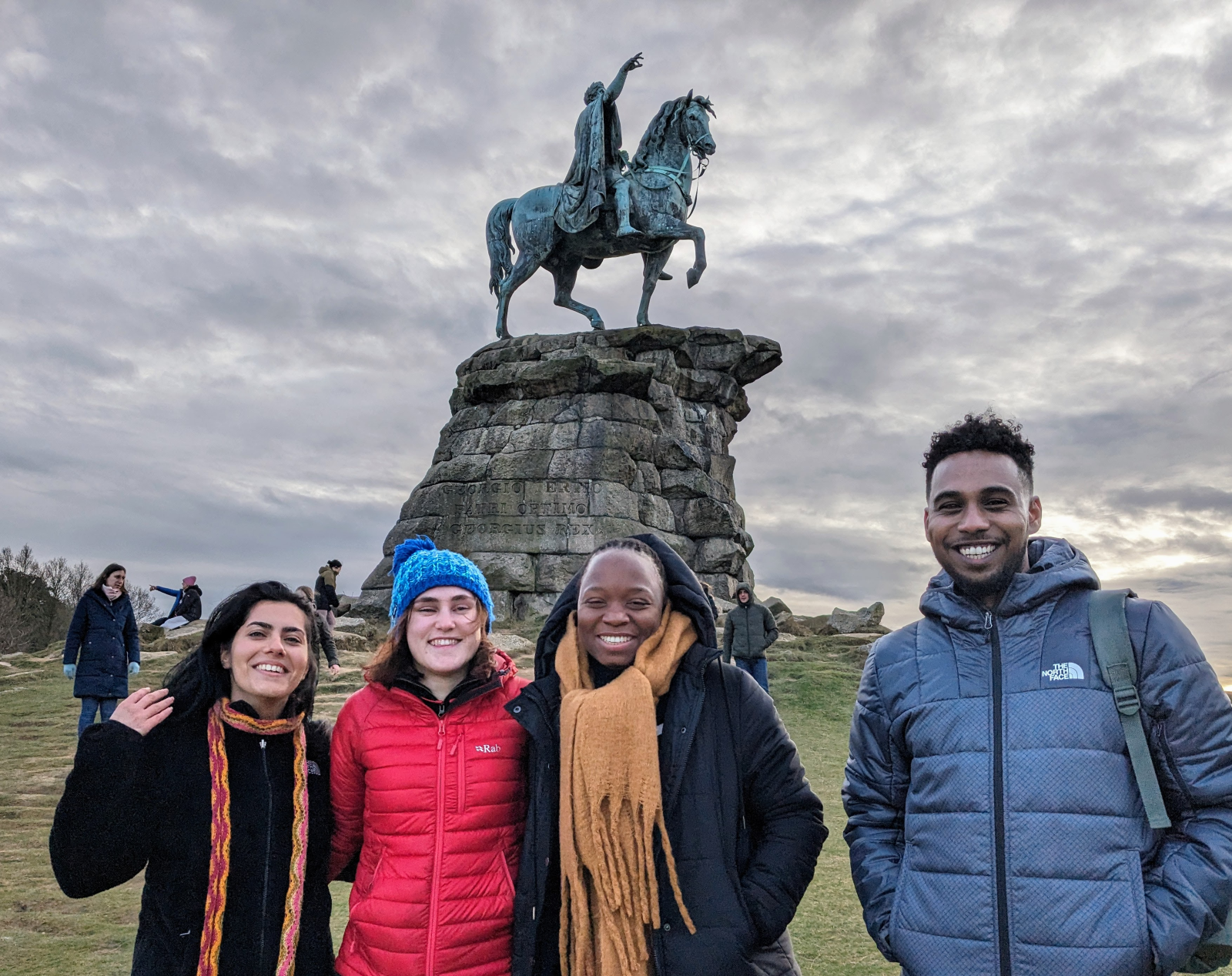
Last weekend a devastating humanitarian crisis erupted. Tens of thousands of refugees fled across the border in desperate need of assistance. Ethnic tensions were high, the host government struggled to respond, and humanitarian agencies—facing intense media scrutiny—were under enormous pressure to provide relief.
Yet perhaps the most unusual feature was that it all took place in the backyard of Windsor Castle.
Don’t worry if you didn’t read about this in the news; it didn’t really happen. Instead, LSTM’s humanitarian studies students—along with peers from the London School of Economics—took part in a three-day mass-displacement simulation in the bucolic setting of Great Windsor Park. Stately Cumberland Lodge provided the venue. And Sir Mark Lowcock, former head of the United Nations Office for the Coordination of Humanitarian Affairs, brought insights to students based on five-years of leadership in humanitarian crises around the world.
Arriving on Friday evening, students were briefed on the simulation exercise. Over the next 48 hours they would be given different role-play identities and asked to complete two scenarios. First was to think through how different actors—ranging from host governments to donor countries and various UN agencies—could agree on how to respond to the fictional crisis. Second was to come up with a detailed plan for establishing a large camp for a forcibly displaced population. As if that were not enough, they would be constantly derailed by last minute budget cuts, agency infighting, and the reputational risks brought about by relentless media pressure.
The students performed exceptionally well. Tasks were allocated according to the UN’s cluster approach system. Difficult questions around how much one should spend for local security, the location of water sources, or the capacity of truck drivers to supply all the necessary shelters had to be addressed. Despite the high pressure, nuanced maps and plans were all finalized in time to present to Sir Mark for feedback. Along the way, students wrestled with balancing the theoretical insights they’d gained from their coursework with the practical demands of the situation at hand. As one commented, “it was a totally different way of engaging with what we’ve been learning; completely engrossing, but also so much fun”.
Byline: this post was written by Dr Ian Madison, lecturer in humanitarian studies at LSTM, who helped coordinate the Cumberland Lodge retreat.